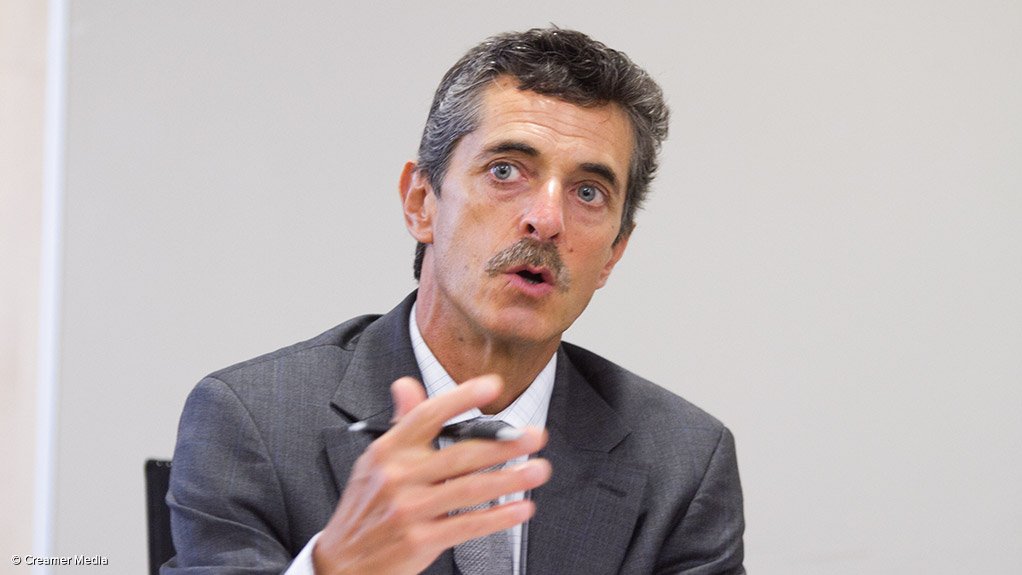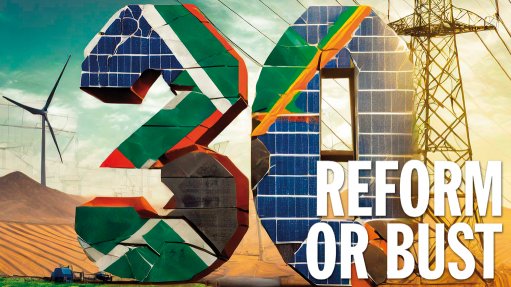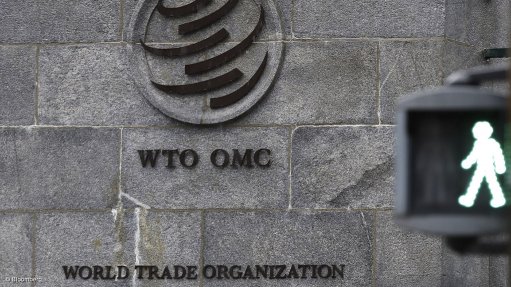Unctad says focus must shift to stimulating domestic demand
Given the insufficiency of global demand, it is highly unlikely that international trade alone will be able to kick-start economic growth, a new United Nations Conference on Trade and Development (Unctad) report argues.
The Trade and Development Report 2014 notes that, six years after the onset of the global financial crisis, international trade remains “lackluster”, with merchandise trade having grown at around 2% in volumes in the first few months of 2014 – a rate that remains below the growth of global output.
In the two decades preceding the crisis, global trade in goods and services expanded more than twice as fast as global output at yearly averages of 6.8% and 3% respectively. During that period, the share of exports and imports of goods and services in gross domestic product (GDP) “virtually doubled”, from around 13% to 27% for developed countries, and from 20% to close to 40% in developing countries.
The report has been published as South Africa’s current account deficit widened to 6.2% of GDP in the second quarter, owing substantially to a fall in exports as a result of a five-month platinum-sector strike. It also comes as government seeks to stimulate exports as part of an agenda to narrow the deficit and spur industrialisation.
Presenting the contents of the report in Johannesburg on Wednesday, Unctad economist Alex Izurieta said that international trade slowed as a result of weak global demand.
Demand is also unlikely to strengthen materially in the near-term, owing to a still weak global recovery. Unctad expects global growth of between 2.5% and 3% in 2014.
DOMESTIC-LED DEMAND
The way to expand trade at a global level is through a “robust domestic-demand-led output recovery at the national level”, rather than through the current emphasis on the cost of trade.
By contrast, Unctad outlines a “balanced-growth scenario” premised on: income policies that support growth of demand; growth-enhancing fiscal policies; industrial policies to promote private investment and structural transformation; regulation of finance and capital controls to stabilise global financial markets; and development-oriented trade agreements.
Such policy prescriptions mesh with South Africa’s current deliberations on the introduction of a national minimum wage, as well as using public infrastructure investment programmes to stimulate demand for locally-made manufacturing inputs.
However, there is less alignment in the area of trade policy, where South Africa aims to bolster the competitiveness of its tradeables sectors in a bid to materially increase exports, particularly the export of manufactured products.
“It is possible to achieve higher levels of global growth of above 6% to 7% continuously over the next ten years through a coordinated effort to press the accelerator on fiscal support,” Izurieta, who co-authored the report, argues.
Such support would be in the form of higher government spending on infrastructure, raising private sector investments in productive activities and income policies that help bolster wages and, in so doing, create new demand.
RESOURCE RENTS
To support such an outcome, Unctad says developing countries should be allowed sufficient “policy space” to pursue proactive trade and industrial policies as part of the Post-2015 Development Agenda, currently under consideration.
It also cautions developing countries not to enter into multilateral and bilateral agreements that will further erode their policy space to protect domestic industries, or to limit government’s ability to maximize the rents they are able to extract from the resources sector.
The report highlights moves by the Czech Republic, Ecuador, Indonesia, South Africa and Venezuela to terminate investment treaties and is supportive of South Africa’s decision to govern investor-State relations through a new domestic law – the Promotion and Protection of Investment Bill is still wending its way through the lawmaking process.
“Developing countries only have a limited policy space – they don’t have the space that developed countries had in the 1930s . . . they don’t even have the space that emerging economies in East Asia, that are now manufacturing powerhouses, had 20 years ago. You have far more limited space, so don’t lose it – please don’t lose it,” Izurieta urges.
The report adds that capturing a fair share of resource rents from a country’s natural resources and deciding how these will be used for development is government’s responsibility and that comprehensive policy aimed at improving revenues from natural resources should be pursued.
Izurieta goes as far as to suggest that governments should seek to extract up to 80% of the rents from the “resources that come from the soil”, adding that this may require a renegotiation or cancellation of existing contracts, increases in tax or royalty rates, the introduction of new taxes and changes in the degree of State ownership of the extractive projects.
Comments
Announcements
What's On
Subscribe to improve your user experience...
Option 1 (equivalent of R125 a month):
Receive a weekly copy of Creamer Media's Engineering News & Mining Weekly magazine
(print copy for those in South Africa and e-magazine for those outside of South Africa)
Receive daily email newsletters
Access to full search results
Access archive of magazine back copies
Access to Projects in Progress
Access to ONE Research Report of your choice in PDF format
Option 2 (equivalent of R375 a month):
All benefits from Option 1
PLUS
Access to Creamer Media's Research Channel Africa for ALL Research Reports, in PDF format, on various industrial and mining sectors
including Electricity; Water; Energy Transition; Hydrogen; Roads, Rail and Ports; Coal; Gold; Platinum; Battery Metals; etc.
Already a subscriber?
Forgotten your password?
Receive weekly copy of Creamer Media's Engineering News & Mining Weekly magazine (print copy for those in South Africa and e-magazine for those outside of South Africa)
➕
Recieve daily email newsletters
➕
Access to full search results
➕
Access archive of magazine back copies
➕
Access to Projects in Progress
➕
Access to ONE Research Report of your choice in PDF format
RESEARCH CHANNEL AFRICA
R4500 (equivalent of R375 a month)
SUBSCRIBEAll benefits from Option 1
➕
Access to Creamer Media's Research Channel Africa for ALL Research Reports on various industrial and mining sectors, in PDF format, including on:
Electricity
➕
Water
➕
Energy Transition
➕
Hydrogen
➕
Roads, Rail and Ports
➕
Coal
➕
Gold
➕
Platinum
➕
Battery Metals
➕
etc.
Receive all benefits from Option 1 or Option 2 delivered to numerous people at your company
➕
Multiple User names and Passwords for simultaneous log-ins
➕
Intranet integration access to all in your organisation





















